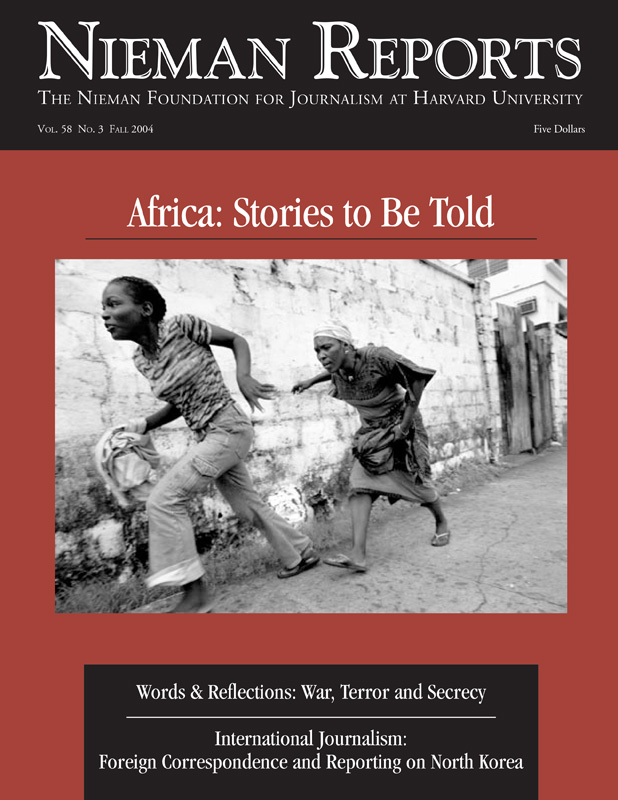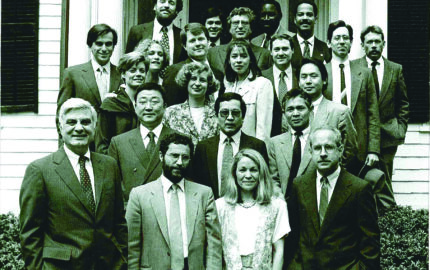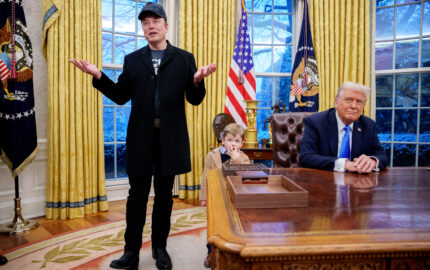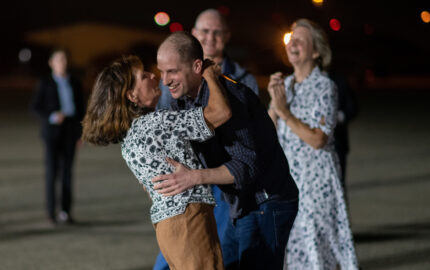It always takes a while for the meanings of the past to take hold. Looking back can offer fresh perspectives, but too often the lessons of earlier times fail to guide our actions today.
Recent reexaminations published in The New York Times and The Washington Post that probe into flaws in their coverage during the months leading up to the Iraq War bring to mind the journalism of the cold war era and early days of the fighting in Vietnam. As time passed, it became apparent that the American government used the press to deceive its people. Once the press began to provide a more accurate picture of the fighting in Vietnam, public attitudes began to change.
Disclosures in the Pentagon Papers, first published by The New York Times, presented an archive of secret government decisions made by several administrations that led the country into war in Southeast Asia. Implications drawn from this information remind us that those who occupy the White House are often more interested in building public support for its policies than in giving citizens a fully accurate picture.
The experience of being misled about the Vietnam War— most notably the Gulf of Tonkin Resolution—by government officials has weighed heavily on Murrey Marder, who was diplomatic correspondent for The Washington Post during that time. “I am convinced that if the American Congress and press had performed their proper constitutional functions of questioning—and counter-balancing—the executive branch, the United States never would have gone to war in Vietnam,” says Marder.
Now, a generation later, some members of the press are experiencing similar regrets about their coverage of another administration and its deceptive claims that led us into another war. Michael Massing of the New York Review of Books said on the “NewsHour with Jim Lehrer” that “if you look at how the press performed in the months leading up to the war, we have a case of one of the most serious institutional failures of the American press since, I think, going back to the early days of Vietnam …. Reporters and editors for the most part went along and … did not challenge the administration and its supporters with sufficient skepticism.”
Both internal critiques confirm Massing’s criticism. The Times’s report, published in May, and The Washington Post media critic Howard Kurtz’s examination of his paper’s coverage in August drew praise for their efforts to examine their work and share their findings with readers. Such self-assessments have been rare events in journalism, though they happen now with greater frequency. A recent example is the Lexington Herald Leader’s front-page examination of its 1960’s civil rights coverage and an apology to readers that it had “neglected” to cover that story.
The significance of these two reports about Iraq reporting is not in their publication but in what they reveal about the practice of journalism and how they reinforce the critical need for a skeptical press to ask probing questions. Within days of the Times’s article—which acknowledged the newspaper’s failure to be skeptical enough in its reporting on the Bush administration’s claim that Saddam Hussein had weapons of mass destruction and on information obtained from Iraqi informants and defectors who were in support of the administration’s interest in removing Saddam from power—the Nieman Foundation launched a new Web site (www.niemanwatchdog.org).
The Nieman Watchdog Project—funded as part of Marder’s gift to the foundation—is grounded in the belief that probing questions are essential to informed reporting. On this Web site, editors Barry Sussman and Dan Froomkin, both Washington Post veterans, track the news and post fresh material, suggesting questions the press should ask. Many items are contributed by scholars and researchers who use their authoritative knowledge to frame questions for the press to consider.
The Bush administration has demonstrated strong discipline in staying on message and controlling information, and this has resulted in fewer leaks to the press. During the past year, however, government insiders concerned about our nation’s struggle to administer Iraq have assisted a more vigilant press in revealing critical new information about intelligence failures, lack of postwar planning, and responsibility at high levels for the cruel treatment of prisoners.
Occasionally the President finds himself in a situation where a skillful reporter can draw out an answer. During the Unity Conference for journalists of color in August, Roland S. Martin of the Chicago Defender asked him whether a person’s legacy should be a factor in college admissions. At first, Bush was evasive, but Martin pressed tactfully, and finally the President said he opposed admissions policies that favored children of alumni—an answer that made headlines. Sussman posted the Bush-Martin exchange on the Watchdog Web site and describes it as an excellent example of how to ask good questions.
Recent reexaminations published in The New York Times and The Washington Post that probe into flaws in their coverage during the months leading up to the Iraq War bring to mind the journalism of the cold war era and early days of the fighting in Vietnam. As time passed, it became apparent that the American government used the press to deceive its people. Once the press began to provide a more accurate picture of the fighting in Vietnam, public attitudes began to change.
Disclosures in the Pentagon Papers, first published by The New York Times, presented an archive of secret government decisions made by several administrations that led the country into war in Southeast Asia. Implications drawn from this information remind us that those who occupy the White House are often more interested in building public support for its policies than in giving citizens a fully accurate picture.
The experience of being misled about the Vietnam War— most notably the Gulf of Tonkin Resolution—by government officials has weighed heavily on Murrey Marder, who was diplomatic correspondent for The Washington Post during that time. “I am convinced that if the American Congress and press had performed their proper constitutional functions of questioning—and counter-balancing—the executive branch, the United States never would have gone to war in Vietnam,” says Marder.
Now, a generation later, some members of the press are experiencing similar regrets about their coverage of another administration and its deceptive claims that led us into another war. Michael Massing of the New York Review of Books said on the “NewsHour with Jim Lehrer” that “if you look at how the press performed in the months leading up to the war, we have a case of one of the most serious institutional failures of the American press since, I think, going back to the early days of Vietnam …. Reporters and editors for the most part went along and … did not challenge the administration and its supporters with sufficient skepticism.”
Both internal critiques confirm Massing’s criticism. The Times’s report, published in May, and The Washington Post media critic Howard Kurtz’s examination of his paper’s coverage in August drew praise for their efforts to examine their work and share their findings with readers. Such self-assessments have been rare events in journalism, though they happen now with greater frequency. A recent example is the Lexington Herald Leader’s front-page examination of its 1960’s civil rights coverage and an apology to readers that it had “neglected” to cover that story.
The significance of these two reports about Iraq reporting is not in their publication but in what they reveal about the practice of journalism and how they reinforce the critical need for a skeptical press to ask probing questions. Within days of the Times’s article—which acknowledged the newspaper’s failure to be skeptical enough in its reporting on the Bush administration’s claim that Saddam Hussein had weapons of mass destruction and on information obtained from Iraqi informants and defectors who were in support of the administration’s interest in removing Saddam from power—the Nieman Foundation launched a new Web site (www.niemanwatchdog.org).
The Nieman Watchdog Project—funded as part of Marder’s gift to the foundation—is grounded in the belief that probing questions are essential to informed reporting. On this Web site, editors Barry Sussman and Dan Froomkin, both Washington Post veterans, track the news and post fresh material, suggesting questions the press should ask. Many items are contributed by scholars and researchers who use their authoritative knowledge to frame questions for the press to consider.
The Bush administration has demonstrated strong discipline in staying on message and controlling information, and this has resulted in fewer leaks to the press. During the past year, however, government insiders concerned about our nation’s struggle to administer Iraq have assisted a more vigilant press in revealing critical new information about intelligence failures, lack of postwar planning, and responsibility at high levels for the cruel treatment of prisoners.
Occasionally the President finds himself in a situation where a skillful reporter can draw out an answer. During the Unity Conference for journalists of color in August, Roland S. Martin of the Chicago Defender asked him whether a person’s legacy should be a factor in college admissions. At first, Bush was evasive, but Martin pressed tactfully, and finally the President said he opposed admissions policies that favored children of alumni—an answer that made headlines. Sussman posted the Bush-Martin exchange on the Watchdog Web site and describes it as an excellent example of how to ask good questions.



